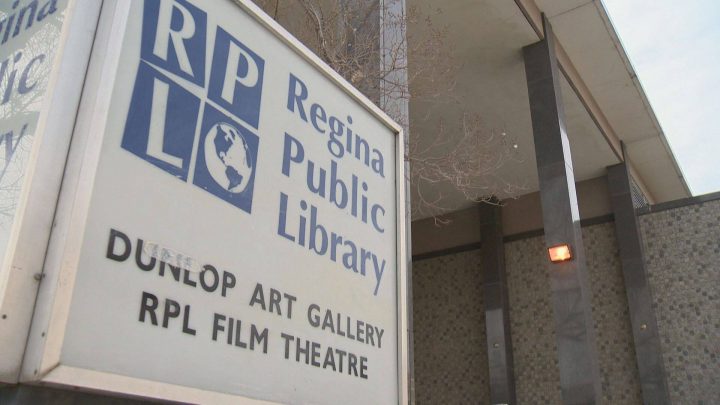The Regina Public Library (RPL) has extended its free Wi-Fi coverage to encompass the outside areas surrounding its branches, in order to ensure people continue to have access to Internet services.

The move comes in response to the coronavirus pandemic forcing RPL to shut its doors on March 16.
Senior manager of corporate services Kevin Saunderson said employees have conducted a number of tests to ensure library patrons will still have access to the same quality Internet they were provided prior to COVID-19.
“We have taken steps to verify that the Wi-Fi access points we have along the perimeter of our buildings are broadcasting at full power,” Saunderson said.

Saunderson said RPL recognizes that while access to the Internet can often be taken for granted, there are still members of the community who struggle to find their way onto the web.

Get breaking National news
“One of the key segments of the population that we serve are some of the underprivileged people in our community, that don’t have access to these services,” he said.
“But a lot of people have old cellphones, and even if they don’t have data, they can still use Wi-Fi.”
“At least they can come by our branches and hang out outside the building, either in their cars, along the street, or in one of the seating areas we have outside of many of our spots.”
Although coming to use the free Wi-Fi is encouraged, Saunderson still urged residents to practice social distancing with other people also using the service.
“Let’s keep everyone safe and healthy,” he said.
- High blood pressure drug recalled over low blood pressure pill mix-up
- ‘Doesn’t make sense’: Union files labour complaint over federal 4-day in-office mandate
- Ottawa gives Canada Post a $1.01-billion loan amid ongoing financial struggles
- Ontario Liberals announce date to select new leader, kicking off race
Even with the Saskatchewan government releasing its plan to reopen the province in phases, RPL said the date its doors will once again be open is still unknown.
“We are certainly looking very carefully at what the conditions are at each phase of the plan,” Saunderson said. “We are preparing our own plans so that as restrictions begin to get lifted, we can start to open again in a phased fashion.
“All of us at RPL are really looking forward to when we can start letting people back into our facilities.”
Questions about COVID-19? Here are some things you need to know:
Health officials caution against all international travel. Returning travellers are legally obligated to self-isolate for 14 days, beginning March 26, in case they develop symptoms and to prevent spreading the virus to others. Some provinces and territories have also implemented additional recommendations or enforcement measures to ensure those returning to the area self-isolate.
Symptoms can include fever, cough and difficulty breathing — very similar to a cold or flu. Some people can develop a more severe illness. People most at risk of this include older adults and people with severe chronic medical conditions like heart, lung or kidney disease. If you develop symptoms, contact public health authorities.
To prevent the virus from spreading, experts recommend frequent handwashing and coughing into your sleeve. They also recommend minimizing contact with others, staying home as much as possible and maintaining a distance of two metres from other people if you go out.
For full COVID-19 coverage from Global News, click here.







Comments